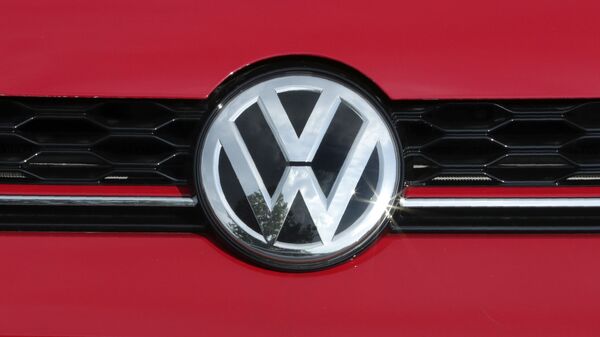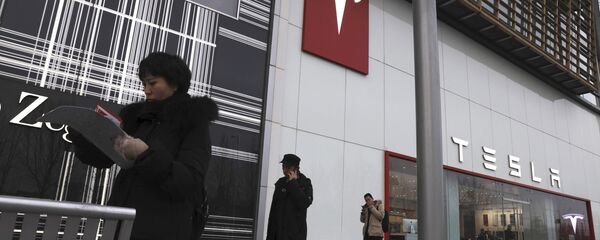Volkswagen AG (VW) announced plans on Friday to join forces with two Chinese electric vehicle companies and invest €2.1bn ($2.33bn).
The German motor giant said it would invest €1bn for a 50 percent share of the state-owned parent company of Anhui Jianghuai Automobile Group (JAC Motors) as well as increase shares from 50 to 75 percent in an existing joint venture with JAC in electric vehicles, a company statement read.
Five electric vehicle models will be launched in the joint venture by 2025 to establish a manufacturing base, VW said.
— Volkswagen Group (@VWGroup) May 29, 2020
Under the new agreement, VW hopes to sell roughly 1.5m new energy vehicles (NEV) such as electric motors, plug-in hybrids and hydrogen fuel cell vehicles each year in the mainland by 2025, the report said.
The German car firm will also pay €1.1bn to take a 26.5 percent share in electric battery firm Guoxuan High-tech Co Ltd to become the Chinese firm's largest shareholder.
VW will appoint the Hefei-based battery manufacturer as a key supplier for future electric vehicle models in China.
— Michael Manske (@MiManske) May 25, 2020
The news comes after a German Federal Court of Justice ruled the car giant must pay compensation to customers involved in the ongoing Dieselgate scandal, where the company used software to manipulate diesel emissions readings.
Volkswagen Group Letters Of Intent As Competitors Eye Chinese Market
The measures come after VW signed letters of intent with Changchun-based automaker FAW Group and the China Intelligent and Connected Vehicles Research Group (ICV) at a 2018 state visit of Chinese Premier Li Keqiang in Berlin.
The agreements would focus on "e-mobility, connectivity, mobility services and autonomous driving" in a bid to drive the company's "far-reaching electro-offensive and to apply new technologies", a VW press statement read.
— CN Wire (@CN_wire) May 29, 2020
VW Chairman, Dr Herbert Diess said at the time: “The Volkswagen Group will strengthen its position in China’s important market by systematically expanding its partnerships there.”
He added that future cars would not just be powered by electricity, but also "digitally connected" and autonomous, reducing motor accidents and traffic congestion, as well as noise pollution and exhaust emissions.
According to the Volkswagen AG Board of Management and Mr Diess, the partnership would include "developing and producing components" for NEVs as well as boosting connected car and autonomous driving, among others.
Volkswagen's move follows competition from German automaker BMW AG, who joined the Chinese market after Beijing relaxed rules on foreign direct investment in 2018. US EV giant Tesla Motors, who plans to build a new production plant near Berlin, also entered the Chinese market by moving its Gigafactory 3 plant to Shanghai in 2019.
China aims to reach a 25 percent target for national motor sales as NEVs, where over 25m vehicles were sold last year.



